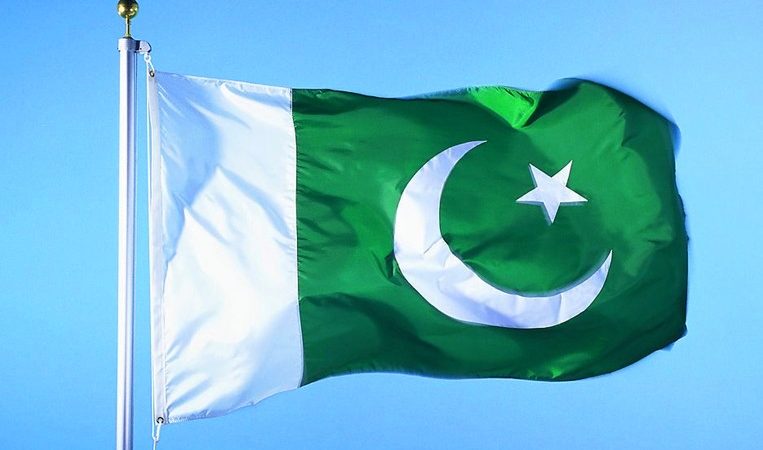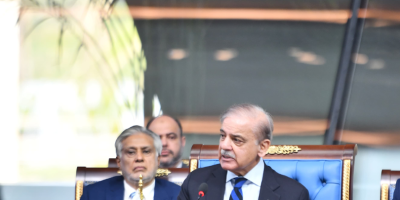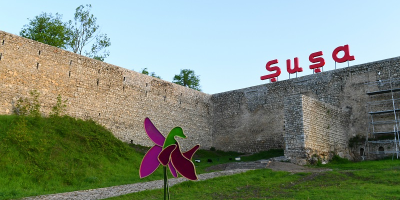Aspirations of Pakistan’s middle class key to Khan’s premiership

Pakistan’s recent elections, which crowned the rise of Imran Khan from cricket star to likely prime minister, spawned numerous hand-wringing articles of the “whither Pakistan?” variety. Most of the articles in the global media focused on a similar theme: The multiple and multiplying economic, social and geopolitical challenges awaiting the new PM, with a heavy dollop of looming economic trouble. A New York Times article summed up the general tenor with its lead sentence: “The economic mess awaiting Pakistan’s new leader could take the thrill out of his election victory.”
But where you stand on this issue, as the old adage goes, often depends on where you sit.
If you sit in the International Monetary Fund, you are concerned about Pakistan’s mounting debts to China and its dwindling foreign exchange reserves, and you foresee the numerous challenges facing the economy as you contemplate a multibillion-dollar loan to the country. If you sit in the US National Security Council, you see an untested new prime minister with a history of sharp criticism of US policy toward Pakistan and a close alliance with the military and intelligence services in a nuclear-armed country vital to the war against terrorism, and which has become increasingly aligned with China. If you are Pakistan’s new leaders, you see a cascading stream of economic and social challenges with a young population hungry for jobs and change, an old guard resistant to losing their status, and multiple bottlenecks from infrastructure to corruption.
If you are India, you see your most familiar geopolitical challenge. If you are China, you see a vital cog of your Belt and Road Initiative, but you also see the billions owed to your companies by a government with a shaky macroeconomic situation. If you are Afghanistan, you see a country with deep intelligence links to the Taliban and extremist networks that have hurt your country.
But what if you are Nestle, the global food giant? Or Unilever, the everyday consumer goods company? Or Emirates airline, the Dubai-based carrier with extensive networks across South Asia? Or if you are a producer of motorbikes or a global fast food brand or a smartphone maker? You see a different story. You see a growing middle class, a rapidly urbanizing society with unprecedented connectivity buying more consumer goods, taking more trips, increasing their mobility, and upgrading their phones.
Bruno Olierhoek, of Nestle Pakistan, told The News of Pakistan last year that the country was entering “the hot zone” of robust growth for food and other industries driven by a rising urban middle class with increasing discretionary income. The Italian company Vespa recently rolled out a campaign to reintroduce the legendary scooter to one of the fastest growing two-wheeler markets in the world. In March, Unilever announced an additional $120 million in investments to upgrade the four factories it operates in Pakistan.
Khan has a powerful constituency in the urban middle classes who are tired of the old politics and eager for a new start
Afshin Molavi
For Unilever, Nestle and other major consumer-facing multinationals, the issue is simple: You chase growing middle classes that are urbanized, wired and ready to buy. Of course, it’s not so simple if you are Afghan President Ashraf Ghani, Indian Prime Minister Narendra Modi or even US President Donald Trump. For all of Pakistan’s promise as a growing consumer market of some 200 million people, its geopolitical position remains thorny, partly owing to a resurgent Taliban within Pakistan, the presence of militant havens, and the persistent perception in Washington, New Delhi and Kabul that Islamabad has been soft on the Afghan Taliban and its intelligence services have been too cozy with the group.
Much has been made in the global media about Khan’s ties to the Inter-Services Intelligence and the military, which his opponents claim ensured his victory. Whatever the case may be, Khan has a powerful constituency in the urban middle classes who are tired of the old politics and eager for a new start.
Most polls suggest that Pakistanis do not support extremist groups and are more interested in bread-and-butter issues like jobs, healthcare, education, consumer prices and the like. Here is where it all comes together: If Khan wants to solve some of Pakistan’s considerable economic problems, he will need to demonstrate a new face to the world — the same face that Pakistani middle classes have been showing for the past two decades: Aspirational, forward-looking, interested in peace and stability, and uninterested in extremism and militancy. This also means showing a new face to Washington, New Delhi, Kabul and beyond.
Khan should not fear this stand. The voices of the militants are often louder than the quiet aspirations of the middle classes but, with this election, they drowned out those voices and Khan should not forget their demands: An end to corruption, greater transparency, and the basic human dignity that comes with access to sustainable work, education and healthcare opportunities.
Handling the mounting Chinese debt, an IMF bailout, Washington’s demands, a resurgent Pakistani Taliban, and a teetering economy will be challenge enough for one leader, but Khan should “chase” the Pakistani middle class in the same way Unilever and Nestle do. It could prove to be profitable for all.
Related News

PM-Address-D8 Youth, SMEs, key drivers of economic development: PM
CAIRO, Dec 19 (APP/DNA):Prime Minister Muhammad Shehbaz Sharif on Thursday, underscoring vital role of youthRead More

Azerbaijan’s restoration of Shusha highlights need to protect islamic heritage
ISLAMABAD, DEC 19 (APP/DNA):The restoration of Shusha, a historic cultural hub, stands as a powerfulRead More


Comments are Closed